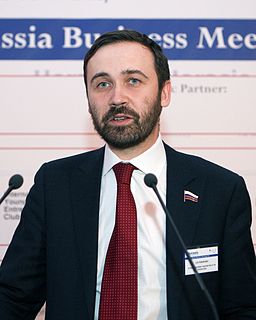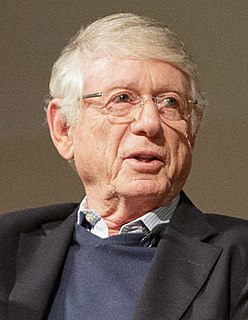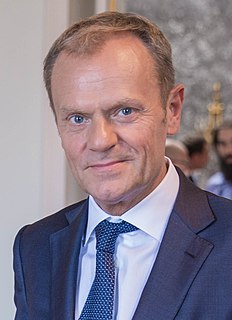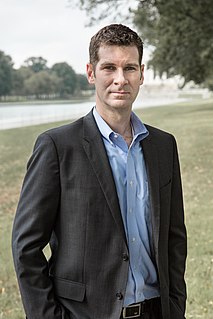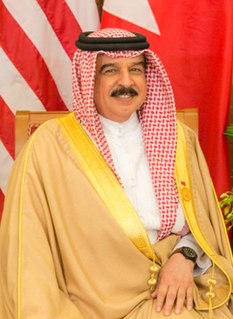Top 103 Geopolitical Quotes & Sayings - Page 2
Explore popular Geopolitical quotes.
Last updated on December 22, 2024.
The potential of Mexico, Canada and the United States is enormous. We have a combined population of half a billion people; peaceful trade-friendly borders that are the envy of the world; the prospect of energy independence is within reach and will change the geopolitical situation of United States; we do a trillion dollars in trade among the three countries; more than 18,000 American companies are involved in foreign direct investment in Mexico and Canada; an increasing number of Mexican companies are creating jobs in the United States.
The industrial civilisation is based on the consumption of energy resources that are inherently limited in quantity and that are about to become scarce. When they do, competition for what remains will trigger dramatic economic and geopolitical events; in the end, it may be impossible for even a single nation to sustain industrialism as we have know it in the twentieth century.
The "prophets" were what we would call dissident intellectuals. They provided critical geopolitical analysis, condemned the crimes of the powerful, called for justice and mercy for those who needed help, etc. I wouldn't personally endorse everything they said, any more than I would for critics of power and its crimes today. But rather generally I think they played an honorable role - and suffered accordingly.
Well what are our geopolitical objectives? First, that North America be peaceful, prosperous, dominated by the United States. Second, that no nation be able to approach the United States militarily ... Those are the goals. It's very simple. We achieve that by making certain that all conflict takes place in the Eastern Hemisphere so we don't have conflict here.
The Russians will always find a pretext for their aggression. It was Putin who said in 2005 that the biggest geopolitical disaster of the last century was the collapse of the Soviet Union. Putin wants to bring Ukraine back into the Russian sphere of influence. That is why he tried everything in order to stop the EU-Ukraine Association Agreement.
Maybe we need to start with the rethinking of what is "west" and what is "non-west." It seems to me that there are any number of populations who already cross that divide, and we could probably point to several existing states that belong exclusively neither to one category nor to the other. Do we use these terms to designate geographical realities, geopolitical ones, or perhaps sites of power, exploitation, orientalism that move through space and time in ways that have to be tracked historically.
There was a deliberate decision after the failure of the League of Nations to make the next attempt to establish a global political actor sensitive to geopolitical realities. The underlying idea was to provide major states, defined in 1945 by reference to the winners in the Second World War (now an anachronism), with assurance that they could take part in the UN without jeopardising their national interests. In this regard, the UN has succeeded, as none of the big countries has withdrawn, and the Organisation has managed to achieve virtually universal membership of all sovereign states.
The truth is that we have long had a multi-track Europe with very different objectives. The traditional differences between the north and the south in fiscal and economic policy are far less problematic than those that exist between Eastern and Western Europe. In the south and east, China is steadily gaining more influence, such that a few EU member states no longer dare to make decisions that run counter to Chinese interests. You see it everywhere: China is the only country in the world that has a real geopolitical strategy.
We know through the process of energy independence, our whole geopolitical footprint changes in terms of our national security and how we operate the American military. In addition to that we've got all these forward liabilities on these entitlement programs that, with the right tax and the energy policy, we can pay down and offset some of those liabilities.
There seems to be a passive alliance between Vladimir Putin and Donald Trump and that's unprecedented in its form and dangerous in its content, because Russia is our most dangerous geopolitical opponent because of the desires that they have in the Middle East and because of their desire to break up Europe. And in the United States, we spent a lot of blood and a lot of treasure trying to keep Europe intact and democratic, and trying to keep the Middle East from being only influenced by people who are massive fans of [Syrian President] Assad and massive fans of the Iranians.
Indeed, Russia and the U.S. were allies during the two tragic conflicts of the Second and the First World Wars, which allows us to think there's something objectively bringing us together in difficult times, and I think - I believe - it has to do with geopolitical interests and also has a moral component.
Putin is just maneuvering. He wants to be respected. He wants to be an important player in global politics. He wants people to negotiate with him and he wants to have the trade-offs here and there and spheres of influence. He's very much a person of the 20th century in the global and geopolitical space.
Go back to the Bible, the Old Testament. I mean there were people who we would call intelectuals, there, they were called prophets, but they were basically intelectuals: they were people who were doing critical, geopolitical analysis, talking about the decisions of the king were going to lead to destruction; condemning inmorality, calling for justice for widows and orphans. What we would call dissident intelectuals. Were they nicely treated? No, they were driven into the desert, they were imprisoned, they were denounced. They were intelectuals who conformed.
We are living in a world where major states and large geopolitical projects have to prove their competitive edge. It is clear, as well, that with regard to the intensifying American-Chinese confrontation and the inert power of a united Europe, Russia has to make up its mind - because it is losing ground as an independent center of power.
Obviously Pakistan and the U.S. are very different countries, but we have common geopolitical interests in preventing communist take over in Afghanistan and hence, now that Pakistan has a government that we can cooperate with, even though it is a military government, we are working together with them in order to promote our common interests. But obviously we also differ with Pakistan on a number of issues.
Prophet just means intellectual. They were people giving geopolitical analysis, moral lessons, that sort of thing. We call them intellectuals today. There were the people we honor as prophets, there were the people we condemn as false prophets. But if you look at the biblical record, at the time, it was the other way around. The flatterers of the Court of King Ahab were the ones who were honored. The ones we call prophets were driven into the desert and imprisoned.
In the Goldstone Report, Israeli perpetrators of possible crimes against humanity were made subject to prosecution and punishment, although the geopolitical leverage of the United States within the UN prevents implementation. At the same time, several African leaders are being prosecuted for their crimes against humanity and participation in genocide: a double standard of sorts, given the impunity accorded to the West and Israel.
I think it is less the limited amount of information than the filters that information about the Middle East must pass through before being fairly addressed in the mainstream media. In more intellectual and geopolitical terms, the perceptions of the region are distorted by a combination of Orientalism and the priorities of the state of Israel, including the refusal to discuss the relevance of Israel's nuclear weapons arsenal in the context of addressing Iran on its nuclear program.
There is a principle of human affairs that goes back millennia, which is that you don't look in the mirror. You can trace this principle back to the Bible. The designated intellectuals of that time are called prophets, which is a mistranslation of a Hebrew word, but they were basically intellectuals, giving geopolitical analysis, criticizing the moral practice of leadership, etc. Now, these people were not treated very nicely. There were other intellectuals who were treated nicely, namely those who centuries later came to be called false prophets. These were the flatterers of the court.
Since 1989, public alarm at the prospect of atomic Armageddon has quietened, but the number of nuclear-armed states has increased, arsenals are being modernized, and powerful states remain convinced that a nuclear security umbrella is vital to national defense, domestic prestige, and geopolitical clout.
We all accuse Vladimir Putin of Cold War nostalgia, but Washington's elites - politicians and intellectuals - miss the old days as well. They wish for the world in which the United States was utterly dominant over its friends, its foes were to be shunned entirely, and the challenges were stark, moral, and vital. Today's world is messy and complicated. China is one of our biggest trading partners and our looming geopolitical rival. Russia is a surly spoiler, but it has a globalized middle class and has created ties in Europe.
I think the sign of complacency in the stock market is when people don't worry. At the moment, everyone worries about everything. They worry about geopolitical risk, about political risk, they worry that the markets are too high. The time to really worry is when everyone thinks that markets are going up and everything is going really well.
A secret blueprint for US global domination reveals that President Bush and his cabinet were planning a premeditated attack on Iraq to secure regime change even before he took power in January 2001... It has been called a secret blueprint for US global domination. ... A small group of people with a plan to remove Saddam Hussein long before George W. Bush was elected president. ... And 9/11 provided the opportunity to set it in motion. Not since Mein Kampf has a geopolitical punch been so blatantly telegraphed years ahead of the blow.
If we believe that the EU is only a fair-weather event we will be doomed. The EU cannot be an answer only to the tragedies of the past but also to the problems of the future. We must understand that the geopolitical holidays are over. It's time to go back to school where there will be only hard exams to take.
Absent geopolitical crises, the role of government policy isn't as big as people think in the short run. In the immediate term, the potential to ignite an escalating trade war without really intending to ought to be high on our list of US dangers as should dangers of popping credit bubbles either internationally or here at home.
As matters now stand, the veto seems inappropriate, given the absence of any deep ideological split between major states, and definitely constrains the war-prevention mission of the UN. Similarly, the present permanent five are out of touch with geopolitical realities, and constitute a remnant of a West-centric world order, casting a shadow of illegitimacy across the activities of the most important organ of global policymaking in the UN System.
I think the next 50 years are going to present the human race with challenges that so far exceed the limitations of geopolitical boundaries or nationalist identity. We're going to be up against challenges that we can barely fathom at this point. So how we embrace them and deal with them will define a great many things about where we go, but, you know, it's hard to say. We're teetering on the edge, I would say.
When we strengthen our relations with the Gulf states, when we cooperate with the Arabs, everybody asks if we are looking for a new geopolitical place. But in the Middle East and the Gulf, you can find German, French and British goods everywhere. German relations to these states are very good, as are English and French relations. Does this make them Arab-oriented?
It's very clear that there are greater threats to these ships since, arguably, World War II. There are new technologies that can now reach them and make them harder to defend, such as anti-ship missiles, combined with space based tracking. The bigger issue, though, is who are gaining those capabilities. With what's going on with China and Russia, we are returning to geopolitical state-by-state competition. The Navy has not had to fight a peer for control of the sea since the Battle of Midway 75 years ago.
Bahrain lies at the epicenter of Gulf security and any violent upheaval in Bahrain would have enormous geopolitical consequences. Global economic stability depends on the uninterrupted export of crude oil from the Gulf to markets around the world - a job that historically has been assigned to the U.S. Fifth Fleet.
Okay, NATO expanded to East Berlin and East Germany. Under [Bill] Clinton NATO expanded further, to the former Russian satellites. In 2008 NATO formally made an offer to Ukraine to join NATO. That's unbelievable. I mean, Ukraine is the geopolitical heartland of Russian concern, quite aside from historical connections, population and so on.
A meme (rhymes with dream) is a unit of information (a catchphrase, a concept, a tune, a notion of fashion, philosophy or politics) that leaps from brain to brain. Memes compete with one another for replication, and are passed down through a population much the same way genes pass through a species. Potent memes can change minds, alter behavior, catalyze collective mindshifts and transform cultures. Which is why meme warfare has become the geopolitical battle of our information age. Whoever has the memes has the power.
















